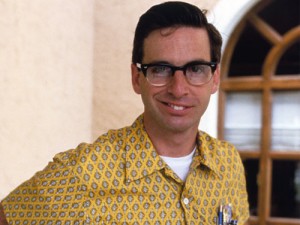First it was nerdwallet, now it’s WalletBlog.
I didn’t know so many financial blogs existed with an interest in foodborne disease.
When an outbreak occurs in this the era of Facebook, Twitter, and streaming news on cell phones, millions of consumers know about it immediately and are likely to swear off the  product involved for the foreseeable future. Therefore, not only will the farm at which it originated almost certainly go bankrupt as a result, but the entire industry will suffer as well.
product involved for the foreseeable future. Therefore, not only will the farm at which it originated almost certainly go bankrupt as a result, but the entire industry will suffer as well.
“Anytime there is an outbreak, sales go down,” said Dr. Douglas Powell, professor of food safety at Kansas State University. “Any commodity … is only as good as its worst farm.”
According to Robert L. Scharff, a former economist for the US Food and Drug Administration and currently an assistant professor at the Ohio State University, foodborne illness costs the country roughly $152 billion annually.
As Dr. Powell pointed out, “Any foodborne outbreak has effects far beyond the headlines.”
The question is what to do about this issue not only because our economy could obviously use a break, but also given the simple fact that, as Dr. Powell noted, it seems out of whack that “we’re supposed to be a developed country, and we have all this illness from something as basic as food.”
The answer, according to Dr. Powell, is to give consumers as much information as possible. People simply have little way to tell whether the food they buy comes from farms that are microbiologically safe or not. Denoting this on labels much like restaurants emphasize good inspection grades would be a good start, even though it would surely alienate industry bigwigs given that it would imply that certain foods aren’t actually safe to begin with.
Ultimately, some marketing reform is also going to be needed. A perfect example of why is the case of organic food. Production issues, such as organic farmers being more conscious of their environmental impact, surely play into its popularity, but its primary driver is the fact that people believe it to be safer than non-organic food, according to Dr. Powell. While marketers don’t out and out say so, they certainly hint at this falsity. We just need to point the marketing machine in the right direction.
Dr. Powell is helping lead this effort with his aptly-titled barfblog, which discusses food issues in a way that will keep the attention of today’s ADD society. Who knows, maybe we can make foodborne illness education the next “in” celebrity cause and in doing so not only save lives, but also save the industry billions of dollars, thereby reducing food prices for everyone and helping our ailing economy.
